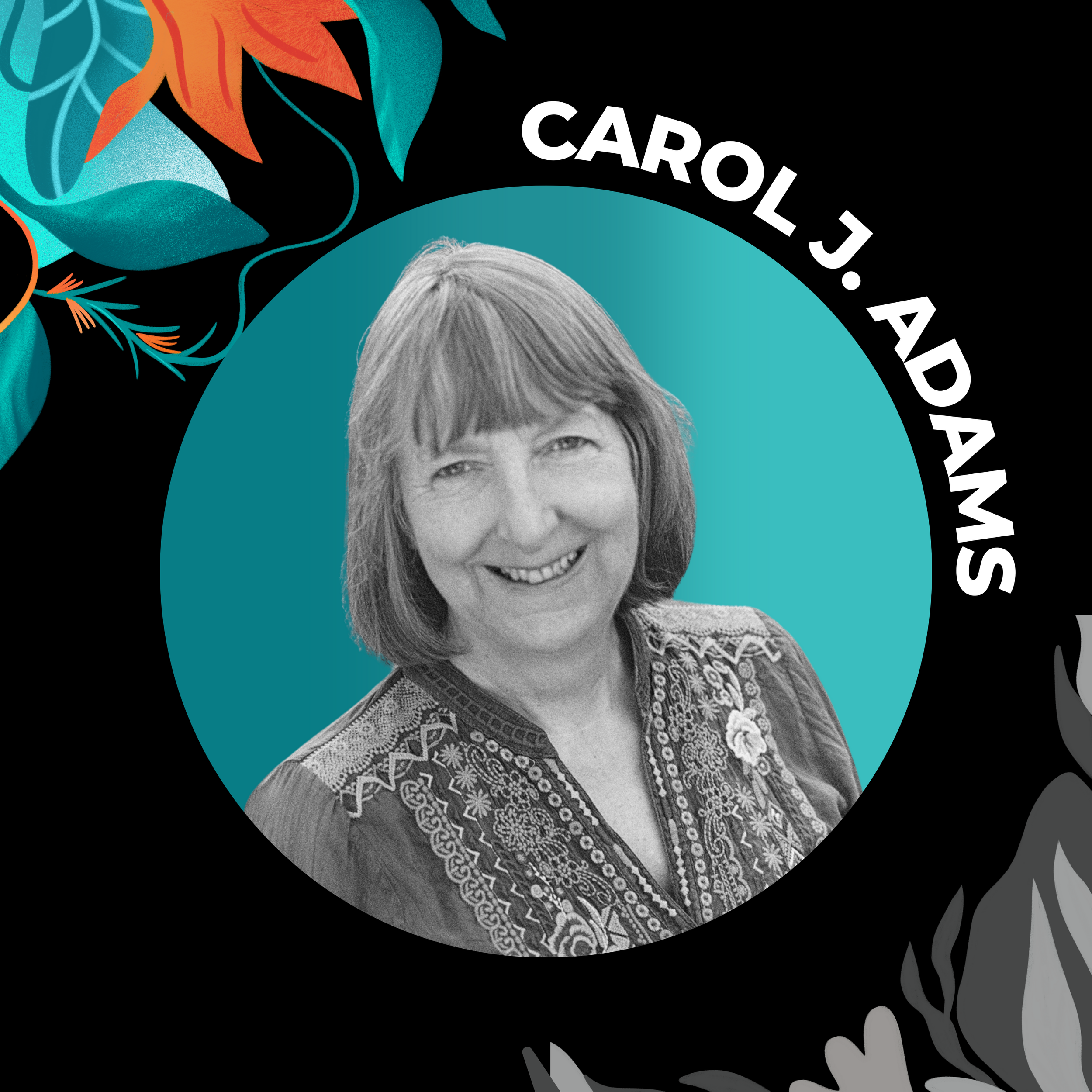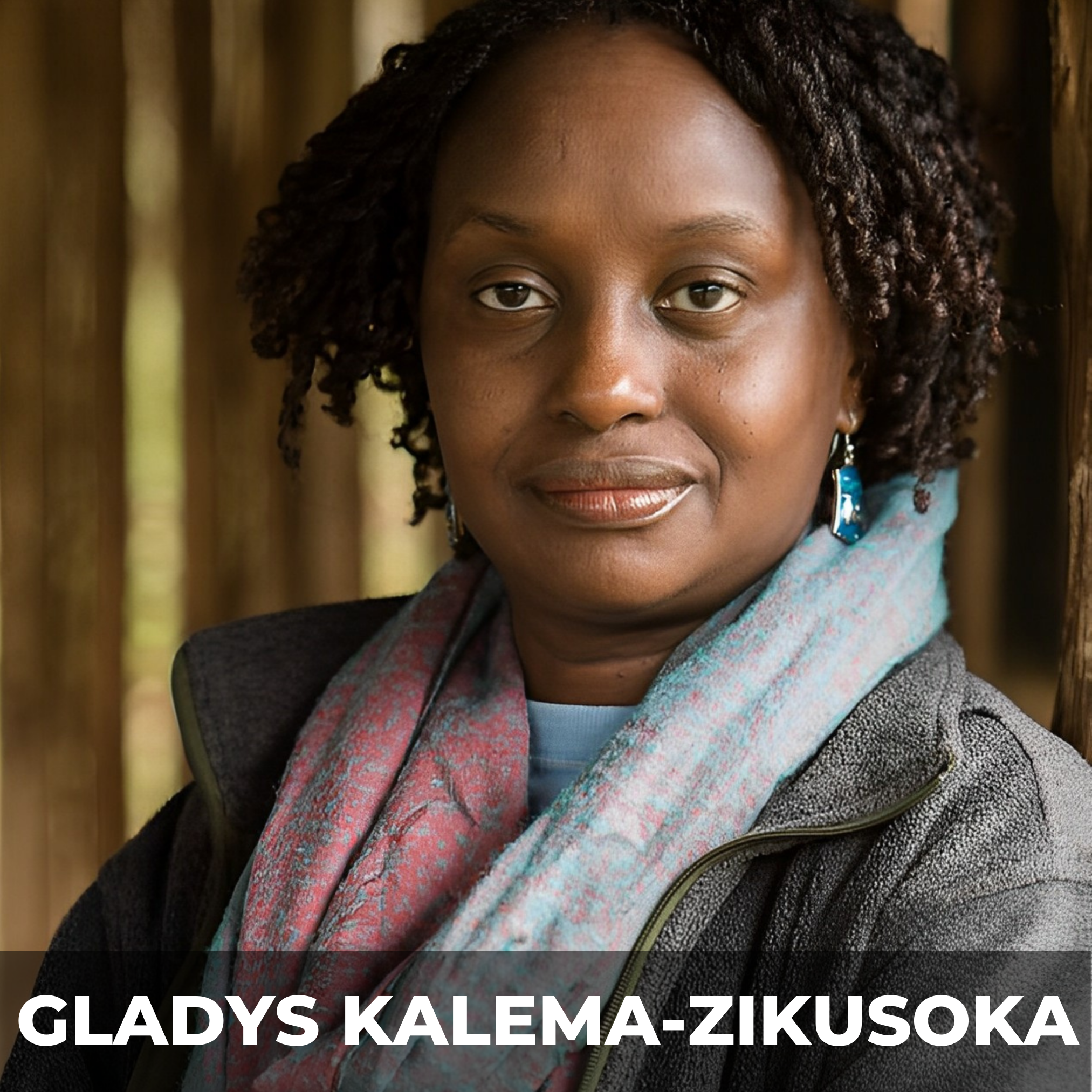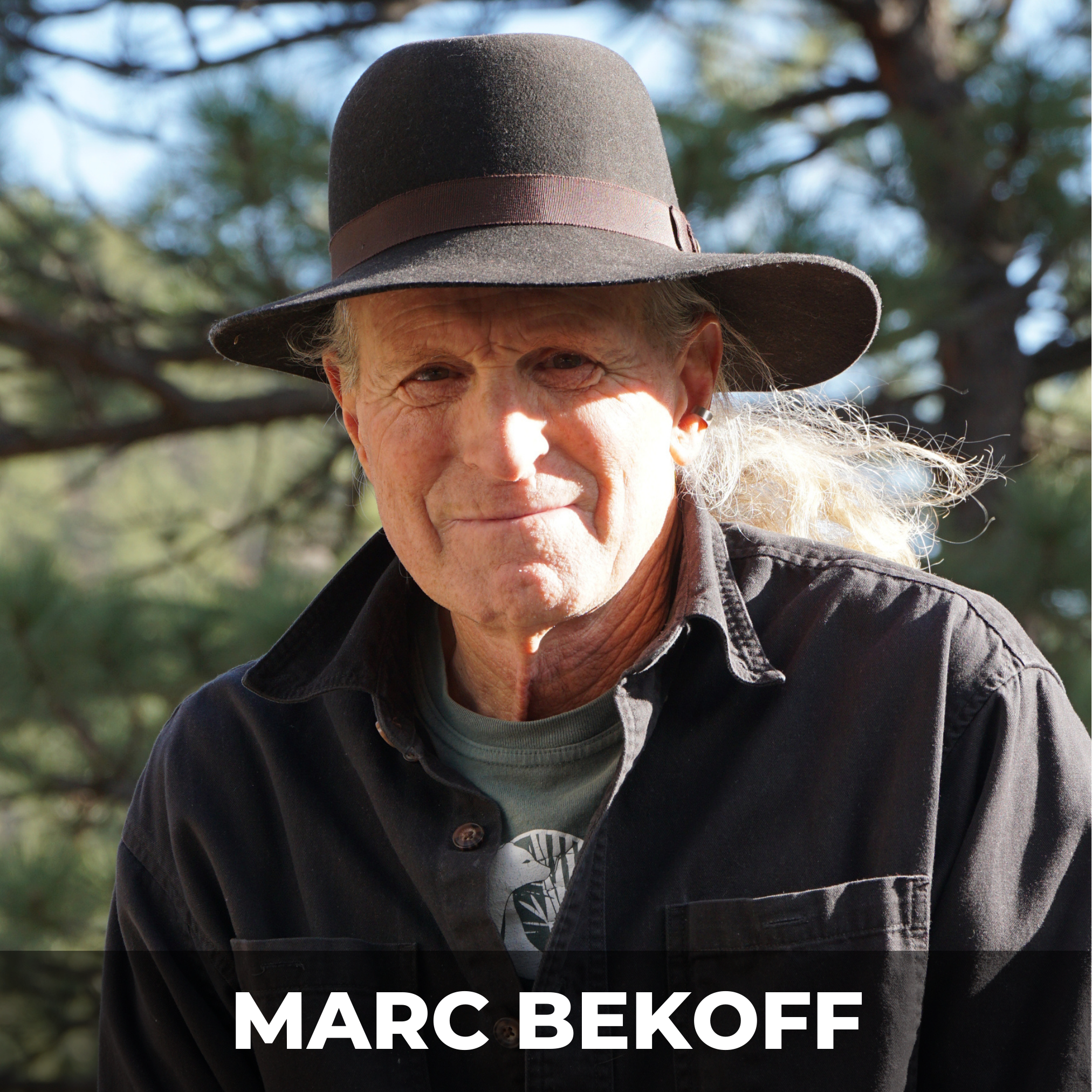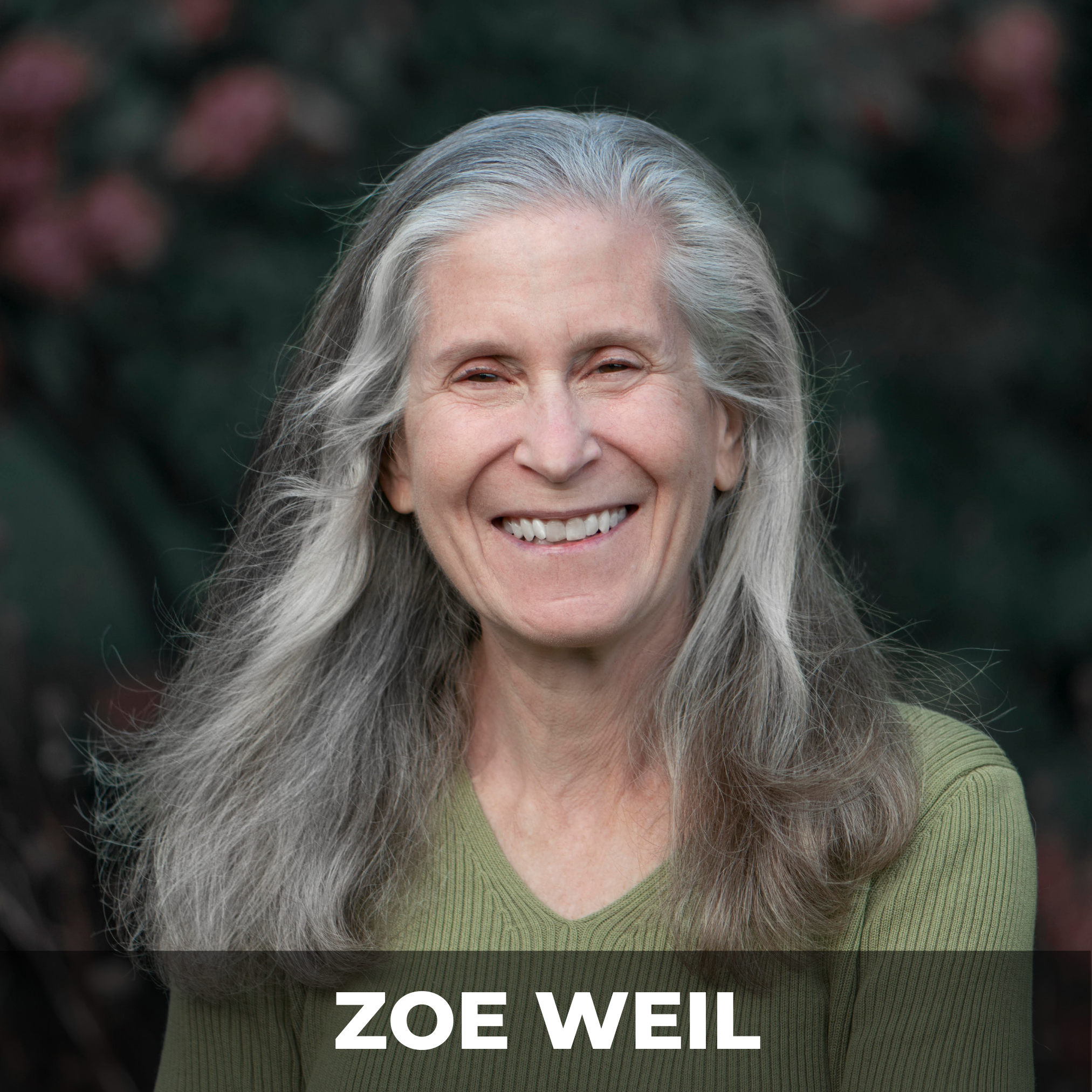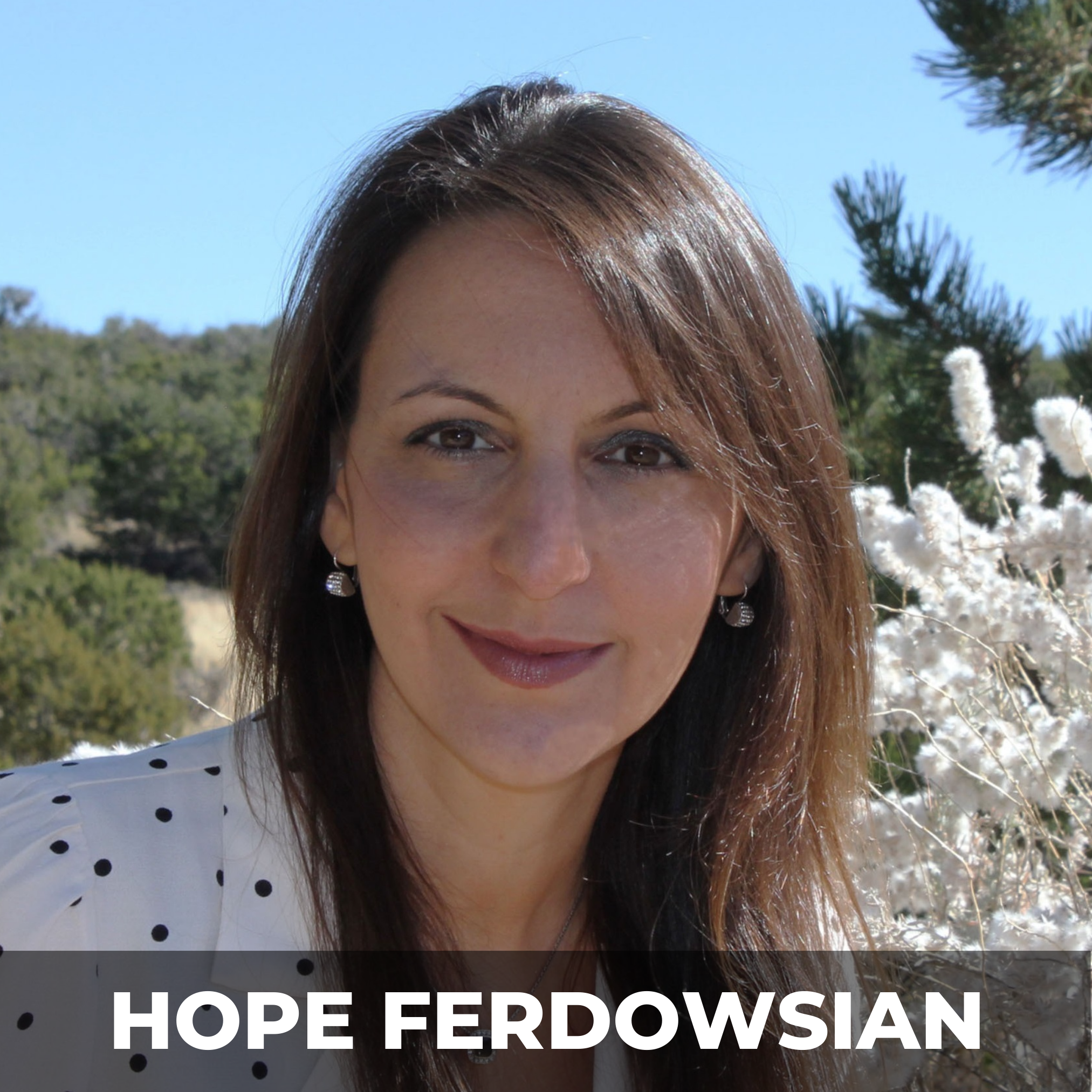Animals as Legal Beings
In this episode, we chat with Maneesha Deckha, Professor and Lansdowne Chair in Law at the University of Victoria, about her research in critical animal law. We discuss her 2021 book, Animals as Legal Beings: Contesting Anthropocentric Legal Orders in which she argues for a new legal category of “beingness” for animals that transcends the inadequate legal categories of “persons” or “property.” We also dive into her 2023 article Animalization and Dehumanization Concerns: Another Psychological Barrier to Animal Law Reform, in which she highlights why a critique of human exceptionalism is essential to advancing the goals of anti-racism and decolonization.
Highlights include:
Maneesha’s personal journey into exploring the links between animal legal studies and critical animal studies, health law, reproductive ethics, feminist analysis of law, and postcolonial and critical race theory;
Deckha’s evaluation of the 2022 decision by the New York Court of Appeals with respect to the ongoing captivity of Happy, an elephant at the Bronx Zoo, in which she outlines why the dissociation of humans from animals is counterproductive to eliminating racism and other intra-human prejudices and inequities;
How the legal classification of animals as “property” creates problems, such as commodification and objectification; meanwhile, using the “personhood” category for animals exacerbates the concept of human exceptionalism. Deckha argues for a new category of “beingness’ for nonhuman animals which recognizes their embodiment, relationality, and vulnerability;
A new six-part series documentary series targeted towards secondary school students, A Deeper Kindness: Animal Law and Youth Activism, which surveys the current field of animal law and policy through the eyes of four youth active in animal advocacy.
MENTIONED IN THIS EPISODE:
-
Maneesha Deckha 0:00
When we maintain an insistence on human exceptionalism, that is always going to leave the animal as “other.” And if you take multiple examples in history, we see that whenever one group of humans wants to devalue another human group, there is a discourse about that human group being subhuman or animal. So if the subhuman or the animal is always like this concept or trope that is heavily stigmatized and is the justification for treating a being poorly, the insistence on human exceptionalism leaves those concepts and tropes intact. So we don't get at the root of the problem of what something like racism is when we think that we can continue treating animals the way we do, or continue to think of animality as something that humans don't have, and that we can be anti-racist, like, you just can't, because being anti-racist needs a critique of anthropocentrism.
Alan Ware 0:59
That was Maneesha Deckha, a pioneering scholar in the field of animal law. In this episode of the Overpopulation Podcast, we'll explore with Maneesha her thought-provoking insights at the intersection of law, ethics, and the rights of nonhuman beings.
Nandita Bajaj 1:23
Welcome to the Overpopulation Podcast where we tirelessly make ecological overshoot and overpopulation common knowledge. That's the first step in right-sizing the scale of our human footprint so that it is in balance with life on Earth, enabling all species to thrive. I'm Nandita Bajaj, co-host of the podcast and executive director of Population Balance.
Alan Ware 1:45
I'm Alan Ware, co-host of the podcast and researcher with Population Balance. We are proud to be the first and only nonprofit organization globally that draws the connections between pronatalism, human supremacy, social inequalities, and ecological overshoot. Our mission at Population Balance is to inspire narrative, behavioral, and system change that shrinks our human impact and elevates the rights and wellbeing of people, animals, and the planet. And now on to today's guest. Maneesha Deckha is professor and Lansdowne Chair in Law at the University of Victoria in British Columbia, where she directs the Animals and Society Research Initiative. Her research expertise includes critical animal law, vegan ecofeminist theory, and postcolonial theory. She is author of Animals as Legal Beings: Contesting Anthropocentric Legal Orders. She's directed an open access documentary series, designed for high school and undergraduate screening, called A Deeper Kindness: Youth Activism and Animal Law. She is currently a visiting professor at the Faculty of Law at the University of Zurich and a senior fellow at the Collegium Helveticum ETH Zurich. And now on to today's interview.
Nandita Bajaj 3:01
Hello, Maneesha, it is so wonderful to have you on our podcast. Welcome.
Maneesha Deckha 3:06
Thank you so much. It's just terrific to be here.
Nandita Bajaj 3:07
And we met over a year ago at the Canadian Animal Law Conference here in Toronto. And seeing how many interests we shared in our short meeting that we had in challenging norms of patriarchy, speciesism, and domination hierarchies in general, I knew that I had to have you on as a guest on our podcast. So here we are. It's great to have another Canadian on our podcast, though I know you're currently a visiting scholar in Switzerland. So anyway, it's great to have you. We're excited to dig deeper into your work today.
Maneesha Deckha 3:47
Thank you. It's wonderful to be here.
Nandita Bajaj 3:48
And Maneesha, we'll begin with kind of the early beginnings of your work. Your research interests include animal legal studies and critical animal studies, feminist animal care theory, feminist analysis of law, social legal studies in general, as well as reproductive and end of life ethics. What a broad and fascinating array of interests. Could you share some of the life experiences that shaped your deep care and concern for the nonhuman world? And how did you decide to channel this concern into the study of law?
Maneesha Deckha 4:29
Well, thank you for those lovely comments. I would start by really saying it was the influence of my elder brother who went off to university first, and then became sensitized to animal rights literature with respect to the food industry, and then brought that literature home over, you know, the December holidays in his first year, and I had, like, you know, a nascent interest in gender issues. Also, I have to credit my brother for that. I remember analyzing in an English class the play, Death of a Salesman, and I had to write an essay, and he's like, Well, why don't you write about, you know, the gender issues. And I was like, Oh, and then so I started kind of down that pathway and was developing that, but really, I remember just seeing the pamphlet leaflet, can't remember which animal rights organization it was, just detailing animals in transport and the suffering and devastation to the mother-child bond and just something I'd never seen and thought about, but instantly had an effect on me to at least become vegetarian, basically straightaway. And then I started reading more and learning more and, myself off to university just two years later, I explored that in courses where there wasn't any course focusing on animals that I was taking. But as I was in like an arts program, and really kind of a combination of social science, humanities courses, focusing on feminism and postcolonial theory, and just social justice issues in general. I was very, kind of, curious as to why the conversation ever went to animals, because at that time - this was the early 1990s at McGill University - we heard a lot about, you know, deconstructing Western dichotomies like culture over nature, mind over body, reason over emotion. I was like, yes, that makes sense. I see how that relates to inter-human kind of hierarchies and inequalities. But what about going beyond the human? So I started reading, like the Sexual Politics of Meat by Carol Adams, and then that led to other kinds of research and for - quote, unquote, fun - like for my own personal interest but also to then pursue that in academic work. And then I brought in that into the law, because I decided I was going to law school, really, you know, without a definite career path, other than I want to do something social justice related, do some type of advocacy, but I'm not sure what and a law degree can't be a bad idea. It will afford a stable and well regarded kind of profession. And I was also then able to pursue a project that eventually, finally 20 years later, became a book in my third year of law school, bringing all these ideas together. So all these ideas, meaning, like the critical theory background I had from my undergrad, looking very deeply as an undergraduate education allows into feminist and postcolonial issues, and then relating that then to kind of feminist animal work by Carol Adams, and Josephine Donovan and others, and then relating that to the legal status of animals as property.
Nandita Bajaj 7:49
That's a great story and also a great evolution of thought. I think for a lot of animal rights advocates that I know some of their early beginnings were in social justice work. And the same story for me, is it then expanded into these larger questions of why do we just stop here? Well, what about the rights of those people? Or what about the rights of the nonhumans? And what about the rights of the river? You know, where do we stop drawing that line? And why? And when did that line ever even get drawn? So I think it's really wonderful that you've kind of made all those connections and great that ended up writing this wonderful book, which we'll be interviewing you about today.
Maneesha Deckha 8:35
Thank you.
Alan Ware 8:37
We'll get into some of your written work that you've written a deep analysis of the verdict in a case decided by the New York Court of Appeals in 2022, involving the rights of Happy, who is a captive elephant at the Bronx Zoo. And in this case, the United States based Nonhuman Rights Project wanted to move Happy from the Bronx Zoo and send the elephant to a sanctuary. And they used legal arguments based on extending legal personhood rights to Happy and the outcome on that case was that the court denied granting Happy legal personhood in a 5 to 2 decision. Now you've written that in addition to the general attitude of human exceptionalism that the judges had, they also had a psychological block that as you've stated, can arise from concerns about exacerbating racism and other intra-human prejudices, given all the history and legacies of animalizing and dehumanizing certain human groups. Could you unpack that for us? And describe what led you to that thinking?
Maneesha Deckha 9:37
Sure. So just start with the latter point, like what led me to thinking was just simply reading the judgment and being astonished at how much of it was the two dissenting judgments. So out of a seven person court, there were two judges in dissent. It was a 5 to 2 majority decision. And the two dissenting judgments really sought to try to convince their colleagues about the rightness of kind of agreeing with what the Nonhuman Rights Project in this case was asking for, which was to have this very, very old legal remedy called the writ of habeas corpus, which is basically a remedy that lets someone come to court saying, I think that someone is being unlawfully detained, and their captor needs to produce them here in court, and the detention must be examined as to whether it is lawful or not. And so the novelty of the claim is that it's being invoked in relation to a nonhuman animal. And this was what is at issue with this case. And the dissents go to great length, in my opinion more so than I've encountered in any judge from like in a case really, in any like English language jurisdiction which judgments are delivered in English, the analysis is speaking to why it's not unethical. It's not offensive to think of animals as coming under the same remedy as humans. And though both dissents - unfortunately in my opinion, although I can understand it as a strategic move and that's what I also write about in my article - make clear that they're not equating animals with humans, but it's not offensive to kind of see animals as a next ground for which this old legal remedy, the writ of habeas corpus, could extend. The majority is aware of the history of this legal remedy; first, applying to successive human groups, so to enslaved peoples in what is known as North America, so African Americans; then to women, then to children, and all of these are human groups. And the majority is fine with that kind of evolution of this legal remedy, the writ of habeas corpus, but they don't want to extend it further. And they only give one paragraph really for that hesitation. But if you read it, as I've argued in my work, it is so loaded with concern that it's emanating from this kind of knee jerk reaction that it is offensive to put animals and humans on the same level. And the reason that it's offensive is not for, let's say, reasons that we might think are kind of universal like, oh, humans are special, humans have dignity, animals don't. So it's like a religious sin or something to think of them together. Really, the ideas are more secularly oriented, even though they, I would say, come from long-standing religious ideas about humans having dignity, being special. But the concern is that if we extend this writ of habeas corpus to this elephant, and to then animals, we are undermining the humanity of those whose humanity is newly kind of founded or still precarious, and so there's some mention of people with cognitive disabilities in the judgment by the dissent, and we could imagine that the majority might have been alluding to that. But really, when they say that the equation is odious, and that's the word they use - and we look up the meaning of odious, it's like hateful - and if we think of the kind of time of the rendering of this judgement in 2022, as I argue in my written work, it's really a commentary that this is a racist move. Because to uplift animals, it's somehow undermining the racial equality of racialized peoples whose humanity is still not stabilized in the larger social realm. So it's definitely an interpretation of the case. As I said, the majority really locates all this in one paragraph. But if you go on to read the dissents, they're just trying to reply to this implicit argument, like it's a very strong language, even in the United States where, you know, maybe politeness and civility is not the mark of kind of the discourse between majority and the dissent. But it's very strong language, for five judges to just tell their colleagues that what they've said is odious. So that's kind of this reaction that “please don't put us on the same level as animals.” That actually is disrespectful of the racial history of the United States is basically the argument. And the dissent tries to reply to that to say, No, it's not, and this is why. And also, they put the caveat, nobody is equating humans with animals. So they're still kind of trying to preserve a human exceptionalism. Again, perhaps that was for strategic reasons to bring their majority colleagues along. And so in the dissent's reasoning, they talk about scholars who suggest why it makes sense, why it's actually furthering, kind of, goals of anti-racism, or decolonization to uplift animals to address injustices against animals. And further arguments about why elephants deserve more, or why at least animals with higher intellectual abilities, according to the dissents, deserve more, and why that's ethical and just and not something odious.
Alan Ware 15:28
Right. Yeah, it's too bad they can't see the progress. I suppose they're assuming that, like you said, the stability of previously oppressed categories is not stable enough for us to begin extending personhood to animals, because we haven't established stability or personhood for all those other groups.
Maneesha Deckha 15:49
And that's even a generous reading of the majority. It's quite simply, our equality discourse - legally, politically, and just like in lay understanding - is one that is only addressed in the human realm. And it's based on this idea that humans are all equal, and they're all special at the same time. They're equal, so the egalitarianism is premised on a inegalitarianism of the human-non human level. So it actually makes sense in that logic to say, if we admit animals it undermines the equality claim, because the equality claim is premised on the exceptionalist claim, vis a vis other animals. So this is nowhere explicitly said or explicitly learned. But this is the implicit way we talk about humans and human dignity, which does come from religious ideas, now as morphed into a secular idea, but retains that idea that humans are special because of reasoning capacities, what have you. And extending it threatens that equality amongst humans, especially for those whose reasoning capacity is not at the paradigmatic level that's presumed, or who have been animalized in history more strongly than other groups of humans. So it is like a particular cultural way of looking at animals as being an animal is bad. Being an animal is a negative. Association with animals is a pejorative. It's something to be avoided because of the history. Whereas we know there are other cultural views, even human cultural views that are possible about associations with animals is not being bad, but it's actually being good and a point of pride and a point of relation.
Alan Ware 17:31
And you argue that strongly separating humans from animals is counterproductive to eliminating racism and human prejudices and inequalities. And why do you think, what would be your arguments for recognizing the human kinship to animals would be a much more effective anti-racist approach?
Maneesha Deckha 17:49
When we maintain an insistence on humans being special, which we can call human exceptionalism, that is always going to leave the animal as other, the nonhuman as other. And if you take multiple examples in history, and take them at face value, and believe that they will then recur, we see that whenever one group of humans wants to devalue another human group, there is a discourse about that human group being subhuman or animal. So if the subhuman or the animal is always like this concept or trope that is heavily stigmatized and is kind of the justification for treating a being poorly, the insistence on human exceptionalism leaves those concepts and tropes intact. So they're always available to be used against vulnerable human groups. So we don't get at the root of the problem of what something like racism is when we think that we can continue treating animals the way we do, and continue to think of being an animal is bad, or continue to think of animality as something that humans don't have. And that we can be anti-racist, like, you just can't, because being anti-racist needs a critique of anthropocentrism. I mean, these ideas grew up together. And they're, they're so entwined, and you can't just address one part and not address the other. So that's a conceptual point. But it is an important conceptual point that most of us don't see because we don't learn about these connections.
Alan Ware 19:34
Yeah, and as we've learned with Angela Saini, the author of The Patriarchs, that the early states with the domestication of animals, it became very easy to begin seeing humans as property. Slaves had been taken in various societies earlier than that, but not on that scale. And those slaves were treated very similarly to domesticated animals and tallied up in some of the first Sumerian writing was done for that purpose of property. And that domination over animals and relegating humans into that kind of category, instead of having a greater equality and less power oppression over animals and other humans.
Maneesha Deckha 20:17
Yes, it's a process of desensitization, right? So when you commodify, you just become desensitized to what you've commodified, and then commodification objectification just seems innocuous or benign. Then it is easy to do that like across the species around if you then justify that as Well, these beings are, you know, a lower level of humanity because they're, they're closer to animals, or they're animalized in some way.
Alan Ware 20:46
Yeah, I've heard some descriptions with indigenous having a bit of a circle of life concept of even the animals they hunted, having some respect and reverence for the animal. Going from that to beating an ox all day, so that it will do your work for you, is going to desensitize you in a way that indigenous people were just not trained in that kind of desensitization, right, that modern societies were in those early empires, and that had been handed down to us from that.
Maneesha Deckha 21:15
And that's really kind of the legal role of enabling a property classification for animals and then naturalizing it as kind of their raison d'etre in this world to be the property of humans. And to then be used by humans is - it's important to kind of realize - how law then supports and fosters that idea. And there is some debate in the animal law world now about how much the legal classification of animals as property creates the problems that we're trying to address. My own view is that it's a critical factor in creating the problems we're trying to address - changing the legal status of animals to something that gives them a subject position, legal subjectivity, that as a rights holder, or something equally protected as a fundamental rights holder - like the right to life, right to bodily integrity, right to liberty - these classic kind of first generation rights, civil and political rights. That type of move is not going to be the panacea and solve all the problems. But my own view is that it's a critical first step, because otherwise the property system is what enables a kind of commodification and objectification of animals to be so ubiquitous and naturalized in a capitalist system that nobody really thinks about it as wrong. And the best we can do is look to our laws to ensure that these industries or businesses run humanely, and even there what counts as humane is so minimum in a country, for example, like Canada.
Nandita Bajaj 22:51
And you've noted in a lot of your writing, that even as animal cruelty laws have expanded over the last couple of hundred years or so, those laws are still founded on the view that animals are people's property. And in recent years, as shown in the case with Happy the elephant, there has been movement in the animal rights community toward trying to establish a legal status of personhood for animals. And your book, Animals as Legal Beings: Contesting Anthropocentric Legal Orders, details many arguments for why you think this legal strategy of pursuing personhood for animals may be misguided. We're gonna get more deeply into that argument in a moment. But first, could you help define for us what differentiates the legal classification of property and personhood?
Maneesha Deckha 23:47
Sure, yes. So in the common law system, which is, you know, a dominant legal system in Canada coming as it did from England, but even the civilian system, which is the other, obviously dominant system in Canada, in Quebec, and then also globally, you have the influence of Roman law, where this idea legally of kind of the person comes forward. So there's no one universal definition of what is a legal person. Actually, as I talk about in my book, drawing on the work of other scholars who've done this kind of surveying, the idea of legal personhood is very rarely discussed by legal authorities, meaning judges or legislators. And when it is discussed it has several iterations. But what we want to appreciate is that when one is called a legal person, regardless of the exact meaning, i.e. whether it is something that's imagined as a very empty category, which can take on any meaning, that's what allows a corporation to be a legal person and has for hundreds of years; or whether it's imagined as something that's tethered to the human, because of religious ideas of human dignity, the effect is that a legal person has rights. And not just kind of the right to shelter or the right to food from a caregiver, if we think of those as rights, but fundamental rights or like strong rights, or this idea of big rights. So what are those? I mentioned those earlier, like classic first generation civil and political rights: the right to life, so the state or a private party, not to take your life; the right to bodily integrity, liberty, and for the state not to interfere with your body, unless it's very well justified. That might be through, let's say, substitute consent laws or something like this that are fashioned or assisted suicide laws that are fashioned, trying to still respect your autonomy and your liberty. So fundamental rights are rights that protect legal persons from interference by others for basically utilitarian reasons. So my life cannot be sacrificed as a human being with a fundamental legal right to life, just because it might help 10 million other people. That's what a fundamental right means. That's what it does. And corporations may not have the exact array of fundamental rights, but they have strong economic contractual rights; and even in some jurisdictions, speech rights, free speech rights and religious rights in the United States. So let's contrast that then with the other great option in the common law, which is to be property. So it's a very binary system. You're either a legal person, meaning you're a rights holder, or you're the object of property. Now, who holds property rights? Legal persons, right? So if you own a home, you have property rights in your home. If you own a mobile phone, you have property rights in your mobile phone. If you have a companion animal at home, you have property rights in that companion animal because that companion animal is defined as a non-rights holder, i.e. just property. That means that a legal person can hold rights in that what's defined as the object of property. So that means the right to possess, the right to rent, the right to sell, the right to loan, the right to exclude others, even the right to kind of divide up and distribute. So basically a lot of managerial rights in another being, right. So we might think, Okay, I have the right to do my mobile phone, like I might sell it to somebody else, or I might destroy it. Oh, this is I might just abandon the ... and get a new one, right. But you can basically do those same rights with animals. If you want to kill your animal, you can take your animal to a veterinarian who has to do it humanely. You can even do it yourself if it meets the minimum standards of humane culling, right? If you want to abandon your animal you can. So this is like the material effect of being classified as property versus being classified as a person. So it's not a case of active disavowal, whereas animals are considered and then disregarded. It was just the cultural valence not to even consider animals as possibly being kind of legal actors or subjects of jural focus further than kind of a Kantean vision of we need to be kind to animals, because it inculcates kindness toward fellow humans. So philosophy, I would say Aristotlean ideas, Lockean ideas, Kantian ideas, come into our legal system. And we have still, in the contemporary era, much reference to philosophers in legal decisions in the court system. And you can also imagine, legislators are also animated by their ideas of philosophy, because many of them have gone to law school and seen these discussions in the courts. So these ideas are just anthropocentric, kind of implicitly. And there's nothing like in our legal system that says an animal is excluded. It is just that it's based on the idea that only we're only talking about humans.There are a few entities in this world that are in the gray zone between property and personhood. The very common example is human embryos that might be the subject in a fertility clinic, that might be the subject of legal dispute between the two parties that created them. How do we think of these human embryos? Are they persons? Are they things to be divided up and shared as objects? So I don't want to suggest that everything is property or personhood, but almost everything is divided up as property or persons. And just to review what who can be a person? It's all of us human beings, corporations for a very long time, ships, municipalities, right. So there are lots of nonhuman entities that are recognized, and have been uncontroversially, as persons.
Nandita Bajaj 30:16
Nonhuman and non-sentient.
Maneesha Deckha 30:20
And like non-physical. The corporation has no form. You cannot see it. You cannot touch it. And it's definitely yeah, not a feeling, sentient, aware entity.
Nandita Bajaj 30:31
Yeah, that's a really helpful differentiation. And so, so telling in how everything around us is built around a very human exceptionalist, human supremacist worldview where we the rights holders, and by we I mean the dominant modern culture of humans who have rights, who then get to decide who else can be holders of rights. And as you've spoken, it is founded on so many principles of religiosity of, you know, a lot of old ideas that have come out of, obviously, from the era of domestication of animals, which was the first break from nature that we made. But then also, even within the scientific revolution or the Enlightenment age that was trying to combat or confront a lot of religious dogma. It never really confronted the human supremacy aspect of the religious dogma. It kind of just perpetuated it, but called it secular, and how much of science and scientific thinking and then as a result, what you're talking about, policies and ethics and laws, that have come out of that thinking, labeled as rational, objective, scientific, has just gone completely unchallenged for so many hundreds of years. So I just think it's so so fascinating that it's talked about as if it's the reality. And when you do try and challenge it in court, you get pushback with words such as odious. What a giant mess.
Maneesha Deckha 32:20
Yes, it is a lot to surmount and to combat. That being said, there is momentum, I think, these days in multiple countries for legal change. And there's certainly some momentum among kind of those in positions of power to hear different voices, to hear different perspectives, and some momentum and actual like calls of justice to grant a different outcome. But we can do a full analysis of kind of which animals are the beneficiaries, and as you might expect they're the animals that don't threaten society too much if they are allowed some liberty, or like a hybrid status between person and property. For example, our companion animals in our homes or animals in zoos. The farmed animals and even the animals in laboratories are are not in these kinds of spaces of legal like momentum just yet.. And I also want to recognize that Steve Wise, who co-founded the Nonhuman Rights Project, recently passed away and has brought so many cases forward for the animals in these sites now that are increasingly contested by the public as being proper for at least certain animals. So the Quebec example of thinking about animal sentience has arisen from larger conversations about sentience. It's quite symbolic. It doesn't have any effect. The cetacean law, the Ending the Captivity of Whales and Dolphins Act, that came from a senator watching Blackfish with their family and having conversation about, we should do something about this. And then that going forward, in the Senate and the House and a lot of grassroots advocacy to get that passed. So these are issues where social views are changing, and there's enough political will to bring something into kind of a statutory form to promote animals' interests, but the system is just culturally anthropocentric without even like batting an eye that there was anything wrong with that, just because of the normalization of animals as cultural non-entities. What is also hopeful is that there are a lot more academic actors, non-governmental actors and just advocates in general. And the nature of the public discourse is changing somewhat to hear these still on the periphery perspectives but not as much on the periphery, as they once were. So certainly in my career and now having taught and researched in this area for over two decades as a professor, and then before that, as a student, the academic field has just blossomed and burgeoned. And that then has a trickle down effect in other spaces. But yes, Nandita, it is a very still bleak, abysmal picture for animals. And so a lot of work is still there. That's why I think, at every opportunity, it's important to bring these ideas into realms where people haven't heard the ideas, as difficult as that can be to do for each individual person who has to be that brave voice in a room of kind of objection, being a dissenting perspective.
Alan Ware 35:40
So yeah, as you've referred to, we have seen this extension of personhood as a legal status to individual wild animals, often like the cetaceans, primates, those charismatic megafauna, as they're often called. And Ecuador became the first country to recognize that animals possess the legal right to exist, develop their innate instincts, and to be free from disproportionate cruelty, fear, and distress. So that's impressive. I'm not sure how legally that will be encoded, or how much it will be enforced. So this extension of personhood rights has been widely applauded in much of the animal rights community. You have seen weaknesses that you explore in your book with the legal framework, and you argue instead for a framework based around the notion of beingness. Could you describe some reasoning of the advantages of focusing on beingness rather than these personhood rights?
Maneesha Deckha 36:36
Yes. So I'm not the first scholar to suggest that personhood is not a great model or framework for thinking about what the interests and vulnerabilities are of humans even and how to respond. So for example, many feminist scholars have pointed to the limits of personhood, and how it works in legal cases for women. And the critique is that, you know, personhood comes from a specific history. As we've discussed, it comes from, you know, before enlightenment thinking, but certainly kind of becomes concretized through kind of the industrial revolution period, through the European era of enlightenment thinking in various countries, as something that should apply to humans because we have the ability to reason. And so we know right away if we think of disability rights critiques or other critiques, this points us to a hierarchy of life as to who can reason and who cannot. So this is what prompts scholars who've never turned their thinking toward animals to say personhood is not really an egalitarian-minded concept from its origins. And I extend that critique to animals, especially because animals, perhaps more so than any other community of beings, have been said to be non-subjects, non-deserving of ethical or legal regard, because they can't reason. I also though say, I don't think personhood is a concept that can be rehabilitated, fast or well enough. So we have a concept that has like this checkered past. Perhaps we can just, you know, fix it up, revise it to make it work better. And in the book, I explain why I don't think that's the case. Because if you do a deeper dive, you see that the legal divide that is person versus property is built on a human-animal divide. So you can't just put animals into the person category, because it was a category that was really meant for humans. And I also say in the book, even if I'm wrong about that concern, Why do we need to go to the language of personhood? On one level I get it. It's what is legally known. It's an extremely well known entity even if it's not well-defined. And the binary system kind of, you know, points us in that direction. If we don't want animals to be property, then we should argue for their personhood. At the same time, though, we're still in the era as we just discussed, a really like a legal blank scape for animals in terms of improving their status. It's not as if we have made gains on animal personhood, and I'm arguing, Now let's roll back and pick a different concept. We haven't made any gains for animals' personhood. So in contrast to personhood, beingness is envisioned as something completely new and as legal subjectivity that is equivalent to affording rights or the legal protections. It's not whether or not it's going to be fundamental rights or something else. Its beingness is an open category - could be rights, could be something else. But the point is that animals wouldn't be called persons or seen to be measured as abiding or not by the norms of personhood, but rather will be valued for who they are as different as they are from humans. So legal persons, again, an ill-defined concept not talked much about, but when it is, it usually centers on this idea of someone who is valued because they're a interest maximizer for themselves. They think at a high level. They are not ruled at all by emotions. They're independent. They're autonomous, without being in relation with anyone else. And they're born into this world this way, and they leave this world this way. So it's very much a legal fiction, because nobody is like this. And beingness would be a corrective in the sense that what it values is not how independent someone is, how autonomous they are, whether they're an interest maximizer, but puts attention onto vulnerability, vulnerability coming from one's embodiment. So kind of the physical pain and suffering we might be subject to in experience. So the psychological pain and suffering you might be subject to in experience, vulnerability coming from one's relations, not how independent we are, but recognizing that we're in relations with others. And this can make our lives go well, or poorly. Sometimes we want to be in very close relations, like animals want to be, many animals want to be, with their families with our children, yet those are devastated by others. And that makes us highly vulnerable. So the law would not respond to someone's independence and autonomy, and non-relationality and say, This is a legal person, and we want to respect their rights. Rather, the law would respond to just a being's vulnerability - because of their embodiment, because of their relationality - and say, this is a legal being, and we want to respect them through rights or another vehicle.
Alan Ware 41:45
Yeah, that's so different than the Lockean, John Locke, the political philosopher of the Enlightenment, that really created kind of that disembodied, rationalistic, independent person who enters the social contract, right, with no history, no connection, just kind of, I'm going to sign this contract to give away certain rights to the state, in order that they protect my property, blah, blah, blah, and that's very disembodied, rational. And it also allows settlers to take over indigenous land because they're not improving it. So they have no right to creation of what was thought of as property, which also ends up killing animals and leading to suffering of animals by insisting that you have to always be doing something to the land for it to be yours. If you leave it alone, it's really not yours, and we will tax you at the best, highest use of that land, you know, in an urban area, that kind of forces you to always take action, always be doing something to it, to the land and to the other creatures. Otherwise you you don't have property rights. So that, in the beingness that you talk about, is we're learning so much more about animal consciousness and animal cultures. You know, what is it like to be a bat, that famous essay from the 1970s of what is it like to echolocate? What is it like to be a squirrel that can climb a brick wall or jump? You know, we have no conception of what these animals are experiencing and appreciating all of their abilities that we can't even fathom. But we're beginning to. Partly, science is paying more attention, I think, to this beingness that you're talking about. So it feels like we can say more and more about beingness now than we could 20,30 years ago, right? And I think it gets to more of the rich understanding of what it means to exist and be conscious in different bodies. That personal legalhood of personhood, just, as you said, has this kind of independent, rational enlightenment ideal of a human being making decisions, maximizing self-interest in kind of a neoclassical economist type of mentality that also comes out of the Enlightenment. So I think it has a lot to recommend it from our perspective.
Maneesha Deckha 44:05
That's why kind of conversations about the recognition of indigenous legal orders in the Canadian context or in other settler colonial contexts, where pre-existing indigenous societies and legal understandings were subordinated, is very interesting in terms of then how that is interpreted, because if we, as I've written, regard indigenous legal orders as having a much more balanced or better valuation of animals. And we are also seeing at the same time that Canadian law - i.e, the common law, the civil law, statutory law - has to align more with general indigenous legal understandings that would also include legal understandings about animals, and human-animal, human-nature relations. So far, our kind of commitments to indigenization, reconciliation, kind of haven't extended to that kind of acknowledgement. But maybe they will, right, with more people kind of making this connection and bringing it into the policy and legal spheres that all of this thinking of animals is much more contemporary. And the legal system just grew up from kind of anthropocentric philosophy and then anthropocentric laws based on that philosophy and religion.
Nandita Bajaj 45:25
On the point about recognizing, you know, indigenous land rights or way of living, the rights of nature movement has been gaining some influence around the world. And these rights have typically been advanced as personhood rights. A river in New Zealand was granted legal personhood, which means it can be represented in court to protect its rights. And similarly, the Lake Erie Bill of Rights aim to grant the lake rights typically reserved for humans, emphasizing the lake’s right to exist, flourish, and naturally evolve thereby challenging traditional legal boundaries between nature and personhood. What are the differences you've seen in the type of caring that is required for entire ecosystems, such as a river, versus the type of caring that's required to attend to the beingness of individual animals.
Maneesha Deckha 46:23
So the legal recognition for rivers, as scholars who've kind of written critically about this recognition have pointed out, it's still premised on human uses of those bodies of water. They may be more oriented toward indigenous understandings and trying to be more balanced in recognizing the rights of indigenous groups with respect to the bodies of water, or they just generally may be more striving for a more balanced relationship, but not really recognizing the right of that body of water to be left alone by humans. It's still envisaged that somebody is using this body of water. So I don't want to say that these recognitions of personhood are not valuable or aren't promising in some respects. But it needs to be underlined that the human use of these rivers is not prohibited by this recognition. And the perspective of the rivers, as much as they can be imagined as saying, Please don't use me, is not really part of this legal conversation. So beingness is meant to be a status that's as protective as personhood is imagined to be for all of us who have legal personhood now, right? If someone wants to use me, they need to give me a remuneration or other type of reward that I see as beneficial to consent, to assent to that use, except in very few capacities. But even there, at least the best interests of that human being is put forward where one cannot decide for oneself, if say one is in a coma, or one has another long-standing issue, and you have other humans deciding for you. The laws mandate that at least your best interests are taken into account and even perhaps more a substitute decision about what you would want to do even if it wasn't what the majority would want to do in that situation. Right? So beingness is meant to be a status that asks the same about animals. What do they want for themselves? What does this individual animal want for herself? And it requires a great deal of empathy and imagination, but not as much as we think like, oh, we can't understand animals or we can't imagine. We know that most communications amongst humans is nonverbal. So we can, you know, imagine to some extent what other humans are thinking even when they don't tell us explicitly by kind of our past experiences, by observing and listening and attending to our interlocutor, the same thing with animals. And by knowing kind of, of having expert knowledge about animal behavior, animal ecology, while looking at animals as individuals and themselves. And so beingness is really meant to get at what would this animal want in this instance, filtering out as much as possible the anthropocentric interest in what we might want, or the anthropocentric filter in being hopeful in aligning their interests with ours, really trying to think about the animal as a separate being that would want something different than what we would want.
Alan Ware 49:40
And how do you envision the beingness legal model might work in terms of new practices and policies? And have you seen any positive trends in this direction?
Maneesha Deckha 49:51
Well, as I say in the book, if animals were legal beings, just as if they were persons, all the harmful uses of animals would have to stop. And so that really then prohibits all industrial use of animals. And it turns our attention to what are our responsibilities toward animals, very much to the domestic animals that we've brought into this world that still might survive going forward. Because I mean, in the agricultural system, these bodies are so maimed and debilitated. It's not clear that any animal is going to survive for too long coming out of these systems. But what are our responsibilities for animals that are surviving kind of normal corporate use? What would they want for their lives at this moment? And how can we, as a society, enable that. So if you think of animals, in research labs, the research of animals would have to stop except according to similar principles where we allow it for humans, who may not be able to consent themselves verbally, to research, but we allow, in certain contexts, research to be done for humans to benefit by someone else giving consent - research on children, for example. So it's not that there will be no animal research whatsoever, but it would be according to a much more consent-taking model. And not just consent. But really, it's about like a justice model for animals. Would this type of research really benefit this animal or a group of animals? Is it obviously not painful? Is it non-harmful? It's not going to have chronic effects. So very, very small amount of current research could go forward. But most research would stop with animals, right. And so that would be a prime legal fact - the prohibition, the banning of what is now legal. And then there are spaces cleared to think about more complicated issues, where it's not clear how to go forward. But we have to really kind of bring different perspectives, and think how to go forward. So this is, if we think of, for example, how animal sanctuaries are run. Right now, there's not really kind of any regulation on how animal sanctuaries are run. But we might then want to think about regulating animal sanctuaries. Right? Or if we think further about, as a few countries have, what are the ways in which companion animals can go forward in terms of, you know, what happens on family breakdown of the human family? But also, is it ethical to have one of a single species in your household when we know that that animal needs to have kind of a species partner, for example. So thinking on guidelines, if we think about conflicts amongst animals, and I don't want to turn our attention to conflicts here, because I think there's a lot more opportunities for kind of cohabitation alliances than we usually think of. But if you think of cats and birds, so we know the number of domestic cats in Canada is a real problem for the birds. And so our attention then goes to thinking about where to regulate vis a vis the cat so that the birds can live, or at least more birds can live and how to be responsive to the needs of cats as well. And that's not something that should put us off extending rights or equivalent protections to animals, because we have rights contests and rights kind of conflicting amongst humans all the time. And what happens is, we find kind of a solution on the ground or we come to a legal decision maker to balance those rights. So if you think of freedom of religion, and freedom in equality, these are often in balancing acts. And the same thing would be with with animals as well, but the most immediate response to the legal system is the prohibition. And then we can think of these, these other issues for how to live with the animals who are living with us going forward.
Nandita Bajaj 53:50
These are some very helpful examples. And you've also recently developed a new documentary series, A Deeper Kindness: Animal Law and Youth Activism, which surveys the current field of animal law and policy through the eyes of four youth active in animal advocacy. And it's a six part series targeted towards secondary school students. I really enjoyed watching it myself. I found it to be very educational, even as an adult. Can you tell us more about this project?
Maneesha Deckha 54:26
Yes. So I really wanted to do something directed at a more youthful audience, out of the view - my own view, and I think reality - that it's very hard to change adult attitudes toward animals, especially with respect to what they eat. Because our eating habits are so formed in childhood and relate to a lot of identity points - gender, culture, religion, and other social complexities. And so as psychological literature has shown in the world of human-animal relations, even when we make a more plant-based change in our diets, there's a lot of regression. So I wanted to do something that reaches children, or at least youth earlier on to give them different perspectives about animals, and at the same time, to educate about the very weak laws that are in place to protect them. I strongly believe that we are all born with empathy for other beings. And because of culture, this is kind of promoted for some and diluted or exterminated for others. So reaching kind of tweens, teenagers even undergraduates to profile what their peers are doing, and what they feel toward animals, and then the social actions that led them to take, at a very high level the youth that we've profiled, I mean they've just done amazing things in such a short period of time. And then to combine that with how the law requires that type of advocacy, because right now the situation for animals is, you know, this way with respect to companion animals, or with respect to animals in the food system, animals in laboratories. That's what really motivated me to do the film. And I also happened to be working on different projects with a wonderful person, Holly Cecil, who has the film background, which I certainly did not have and still do not have, that could then kind of take this forward. And the film medium I also wanted to tap into because, while I think literature and novels are also historically important in galvanizing change and still important, I think most people are watching more films than reading. And this is what can really accelerate change, as happened in the case of Blackfish, the documentary, and then we have our legislation.
Nandita Bajaj 57:05
I think that's wonderful that you are working both upwards to try and change policy within a framework that works for animals that is not anthropocentric, but then also that you're reaching down and working with changing attitudes and behaviors within the education system. Because, you know, as a former teacher, I can attest to the fact that some of the indoctrination toward human supremacist ideas begins in schools. So I think it's a brilliant move to be working along both these prongs. And yeah, we are so thrilled to have someone like you who understands not just the aspect of human supremacy, but also the intricacies of all the connections you are making to other forms of oppression, and seeing animal oppression as the first, the most discriminatory oppression that laid the pathway for all the other forms of oppression to take effect.
Maneesha Deckha 58:08
Thank you so much.
Alan Ware 58:08
much. Well, yeah, thank you for researching this, and getting to learn about your concept of beingness was quite eye opening. And I think that is a fruitful approach that we all can take in animal rights and the rights of nature, in general, advancing this concept of beingness. So thank you for that.
Maneesha Deckha 58:28
Thank you so much. I hope to see you both in person sometime soon.
Alan Ware 58:33
That's all for this edition of the Overpopulation Podcast. Visit populationbalance.org to learn more. To share feedback or guest recommendations write to us using the contact form on our site or by emailing us at podcast@population balance.org. If you enjoyed this podcast, please rate us on your favorite podcast platform and share it widely. We couldn't do this work without the support of listeners like you, and we hope you'll consider a one-time or recurring donation.
Nandita Bajaj 59:01
Until next time, I'm Nandita Bajaj, thanking you for your interest in our work and for your efforts in helping us all shrink toward abundance.



